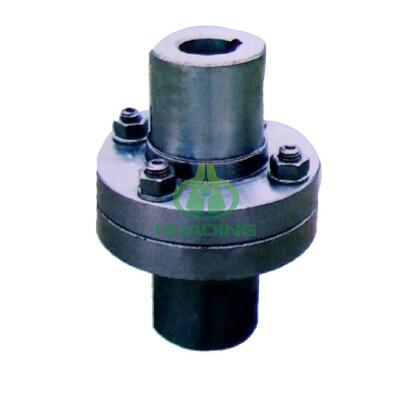A rigid flange coupling is a type of mechanical coupling used to connect two shafts together in machinery and mechanical systems. It is designed to transmit torque and rotational motion between the shafts, allowing them to rotate as one unit. The term "rigid" refers to the coupling's ability to maintain precise alignment between the shafts, ensuring efficient power transmission and minimizing misalignment issues.
Key Features of Rigid Flange Couplings:
Design: Rigid flange couplings consist of two flanges, one on each shaft, that are bolted together using screws or bolts. The flanges are typically made of robust materials such as steel or cast iron to ensure strength and durability.
No Flexibility: Unlike flexible couplings, such as elastomeric or universal joints, rigid flange couplings have little to no flexibility. They provide a solid and rigid connection between the shafts, which is suitable for applications where precise alignment is essential.
Torque Transmission: Rigid flange couplings efficiently transmit torque from one shaft to another, allowing them to rotate in unison. This is crucial in many industrial applications where torque needs to be transferred reliably and accurately.

Stability and Alignment: The rigid design of these couplings ensures stability and maintains alignment between the connected shafts. This helps prevent vibration, noise, and premature wear in the machinery.
Easy Installation: Rigid flange couplings are relatively easy to install. They can be mounted directly onto the shafts using standard bolts or screws, making them a practical choice for various applications.
Applications of Rigid Flange Couplings:
Rigid flange couplings are commonly used in a wide range of industrial and mechanical applications, including:
Power Transmission Systems: They are frequently employed in power transmission systems such as motors, gearboxes, pumps, and compressors to transfer torque between rotating shafts.
Machine Tools: Rigid flange couplings are used in machine tools like lathes, milling machines, and drilling machines to connect the motor shaft to the tool's spindle.
Conveyors and Mixers: They are used in conveyor systems and mixing equipment to connect the motor or engine shaft to the conveyor rollers or mixing blades.
Industrial Fans: Rigid flange couplings are used in industrial fans to connect the fan's motor to the impeller shaft, allowing efficient rotation of the fan blades.
Advantages of Rigid Flange Couplings:
Precise Torque Transmission: Huading Rigid flange couplings offer accurate torque transmission, making them suitable for applications requiring precise control and synchronization of rotational motion.
High Torque Capacity: They can handle high torque loads, making them suitable for heavy-duty applications.
Stability and Reliability: Rigid flange couplings provide a stable and reliable connection between shafts, reducing the risk of misalignment and mechanical failures.
Low Maintenance: Due to their simple design, rigid flange couplings generally require minimal maintenance, contributing to the overall efficiency of the machinery.
In summary, a rigid flange coupling is a robust and reliable mechanical coupling used to connect two shafts in machinery and mechanical systems. Its rigid design ensures accurate torque transmission and alignment, making it a practical choice for various industrial applications where precise motion control and stability are essential.





Comments
0